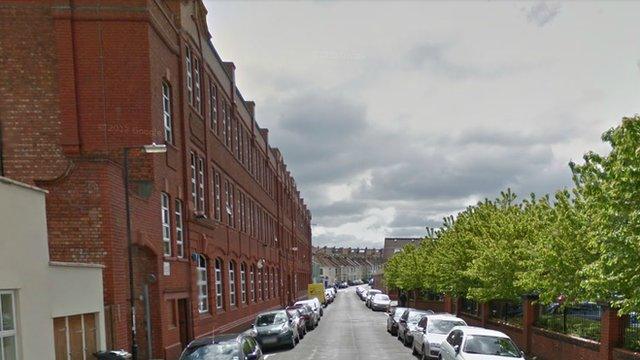Imperial Tobacco's link to Nottingham comes to an end
- Published
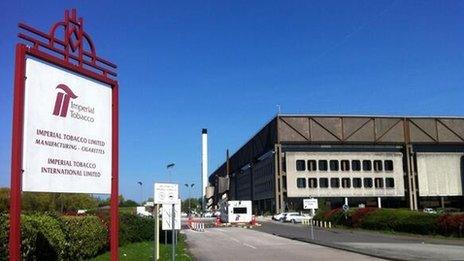
Imperial Tobacco once employed 7,000 people in Nottingham
News of the closure of the Imperial Tobacco factory in Nottingham came as a huge shock to staff and thousands of families whose relatives had worked there.
As the last remaining cigarette factory in England it will also come as a big blow to an industry that was once very much rooted in British history.
Bosses have blamed declining sales and a growing black market trade for the decision to move out of the UK.
The impact of this will be felt on the 540 workers who still work at the Horizon factory in Thane Road, Nottingham but many believe it will also have a huge effect on the city's economy.
Once producing more than 1m cigarettes a day and employing up to 7,000 people at its height in the 1930s, Imperial Tobacco has been one of the biggest employers in the city for decades.
Generations of families have worked in one of the three Imperial factories that once stood in Nottingham.
Tim Watchorn was born yards away from the firm's No3 factory and followed in his father's footsteps, working at the factory for 40 years before retiring.
"When I started it was the boom years. The place was really humming," he said.
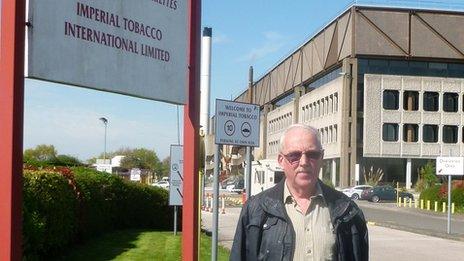
Tim Watchorn said the factory's closure was a "sad day for the workforce"
"In the late 60s and 70s I worked in the transport department and travelled up and down the country delivering cigarettes.
"As a young chap it was the sort of thing you thrived on. They were the happiest times."
Mr Watchorn said the announcement of the closure was a "sad day for the workforce".
"This place provided excellent employment for a long period of time for people," he added.
"In the old days the Imperial was Nottingham and Bristol based and it looked after its workforce in a completely different fashion.
"The staff were at the heart of the community. When it snowed workers went out with shovels to clear the pavements and they had first class sports facilities used by everyone."
Looking after employees
The business was founded in Nottingham by John Player in the 1870s who started selling pre-packaged tobacco from his shop before buying his first factory.
When he died, his sons John and William took over the business and John Player later became one of the 13 companies that amalgamated to form Imperial Tobacco.
The firm, which produces cigarette brands including Lambert and Butler and JPS, still has its global headquarters in Bristol although the last factory there closed in 2010.
The only other remaining cigarette factory in the UK is run by Japan Tobacco International in Northern Ireland.
John Beckett, professor of English Regional History at the University of Nottingham, said the Victorian idea of industrial welfare was at the centre of the business.
Management treated workers to days out and built sports facilities for them to use in the hope of increased productivity.
"They would pay well and look after their employees and therefore they would get loyalty and good returns for the work they did," he said.
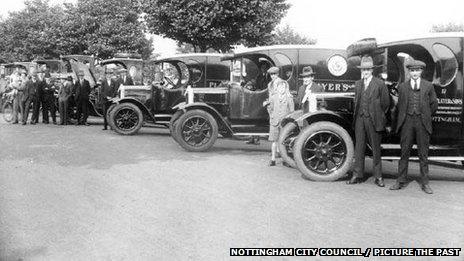
Imperial often treated employees to days out and trips to the seaside
"It worked for a long time. It was a part of the way that industry worked and that's why the closure of the factory is so sad.
"It was a part of the Nottingham DNA. People who worked there will remember it more than just a workplace. It is where they had their friends and socialised.
"It played a great part in their life."
It is no surprise the cigarette manufacturing industry has declined in the UK as people became more conscious of the health implications of smoking and the effects it left on the workers who were given free cigarettes.
Hazel Cheeseman, from Action on Smoking and Health, said: "Imperial Tobacco has long been one of the most profitable companies in the UK and it remains, as ever, concerned with the bottom line as it shifts jobs abroad.
"One of the more dubious legacies it leaves behind is its contribution to addiction and disease among its own workers, after decades of handing out free cigarettes to the workforce.
"This lethal legacy will remain long after the factory doors close."
- Published15 April 2014
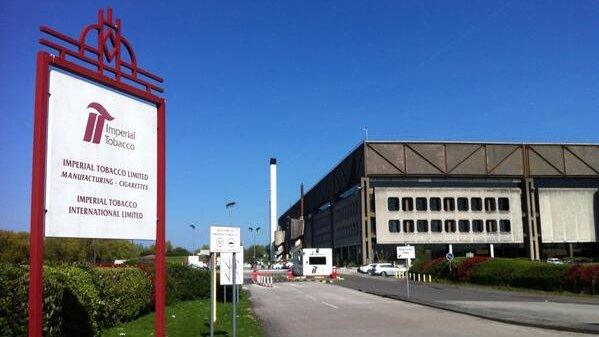
- Published24 April 2013
